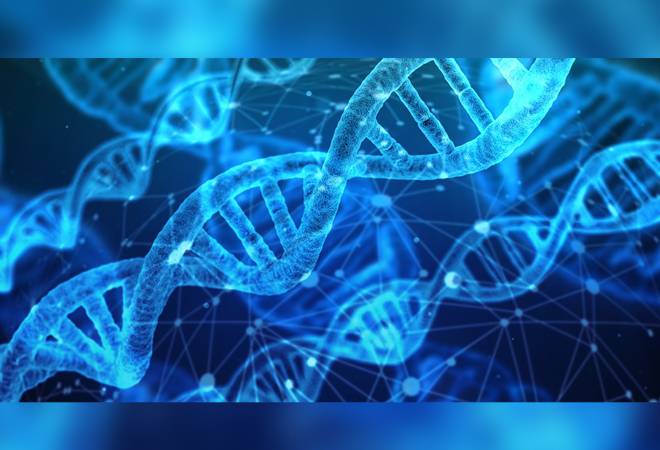This article is written by Tejal Ratnakar Patil, a student of G.J. Advani Law College, Mumbai University.
Table of Contents
Introduction
Technological Innovation can be utilized for the betterment of society as an incredible technique for bringing justice. Courts in India are utilizing these technologies, but it’s at a primitive stage. DNA profiling, a modern forensics innovation, is perhaps the most astounding instance of technical innovation and has groundbreaking effects on our justice system. In Indian jurisdiction, DNA profiling technology has created a substantial role in settling crimes in the last few years considering the surge in crime counts. Hence, the courts are compelled to explore technological improvements to enable the dispensation of justice more successful and smooth.
Concept of DNA profiling
Deoxyribonucleic Acid (DNA) is the genetic material present in the cells of all living creatures. Each person has a distinctive DNA that doesn’t match with anyone else other than monozygotic twins. The Geneticist Alec Jeffreys from Leicester University, England, has invented the DNA Profiling Technique. DNA profiling technology is a modern gene-based technique employed by forensic scientists to identify an individual.
DNA profiling analyses human DNA, such as saliva, skin, hair, blood, sperm, and so on, that can be matched to DNA taken from a particular individual previously. It helps with deciding the personality traits, behavior, and at times even heritable illnesses of a person. In cases like homicide, sexual assault, etc, the technology has enabled identifying by even a small piece of the tissues. It is likewise used in civil proceedings, especially in cases in which kinship is identified.
DNA evidence in Indian courts
Currently, there are no concrete regulations in India to do with the eligibility of DNA Profiling or forensics. Though there are certain provisions of the Code of Criminal procedure and Indian Evidence Act, 1872 regulating medical and technological matters, but they are quite implicit. It is hence left exclusively on the judges, either to approve or to refuse DNA testing. This tends to cause chaos and ambiguity when ensuring justice. Therefore, It is based on whether the technique of DNA collection and testing is legitimate or not, and if the Courts are convinced with the authenticity of the DNA test, only then is it acceptable.
Despite the fact that there are no questions regarding the efficacy of the DNA profiling technique but due to constitutional or statutory limitations, judges of the Supreme Court and High Courts have had varying opinions towards the admissibility of DNA evidence.3 The Supreme Court gave preference to DNA testing under Section 45 Indian Evidence Act over the legitimate presumption under Section 112 of Indian Evidence Act in the current case of Nandlal Wasudeo Badwaik v. Lata Nandlal Badwaik & Anr.
DNA Technology (Use & Application) Regulation Bill
DNA Technology (Use & Application) Regulation Bill was cleared by the Union Cabinet in 2018. And still, by the end of 2018, the bill couldn’t be passed and was lapsed following the 16th Lok Sabha’s dissolution. Subsequently, after the formation of the 17th Lok Sabha in 2019 the bill was again introduced and is now being analyzed by the Standing Committee of the Rajya Sabha. The purpose of the Bill is to build a DNA database containing profiles of accused, victims, and their family members. Nevertheless, there are concerns with this bill such as the creation of a DNA Data Bank can lead to maltreatment of confidential information of an individual whoever it might, the storing of DNA Profiles of innocents is invalid as per the constitution because it violates the right to privacy.
DNA profiling and Indian legislations
Section 53A of the Criminal Procedure Code is newly added by the CrPC Amendment of 2005, it states a detailed medical examination of a person accused of an offense of rape or an attempt to commit rape by the registered medical practitioner at the request of a police officer in good faith for the propose of the investigation.
Section 164A of the Criminal Procedure Code added by the CrPC Amendment of 2005, talks about the medical examination of a rape victim by a registered medical practitioner with the consent of the victim.
Similar to the above-mentioned Section 53A of CrPC, Section 27(1) of Prevention of Terrorism Act, 2002, states that an investigating officer has power to requests to the court in writing for obtaining a sample of handwriting, fingerprints, footprints, blood, saliva, semen, hair, etc of an accused person, who is involved in the commission of an offense under the act and it shall be lawful for the court to direct such samples to be given by the accused person through a medical practitioner.
Section 45 of the Indian Evidence Act, 1872, deals with Opinions of experts —When the Court has to form an opinion upon a point of foreign law or of science or art, or as to the identity of handwriting, the opinions upon that point of persons specially skilled in such foreign law, science or art, or in questions as to the identity of are relevant facts. Such persons are called experts.
Section 112 of the Indian Evidence Act 1872 provides that any child born during the continuance of a valid marriage or within 280 days after marriage being dissolved and the mother is also not remarried again, and then it will be conclusive proof that the child is the legal child of the person to whom the mother is married. The section provides one exception that the husband can escape the parentage claim by proving that there was no access between him and the mother of the child during the time when the child could have been conceived.
Hence from the above-mentioned provisions, it is quite clear that DNA technology cannot be used explicitly.
Conflict between fundamental rights and admissibility of DNA profiling evidence
The legitimateness of DNA profiling in India remains somewhat dicey, competing between justice and privacy. The Court’s right to order a person to take a DNA test can violate the Right to privacy under Article 21 and Right against Self-incrimination under Article 20(3) of the Indian constitution, which shields an offender from presenting evidence against him. And this is why the Indian courts are often hesitant to consider proof based on DNA profiling techniques.
In regards to Govind Singh v. State of Madhya Pradesh, the Supreme Court held that the fundamental rights must be limited on the grounds of public interest. In any circumstance, if the constitutional rights of the parties are in dispute then it is the responsibility of the court to find a middle ground. On this basis, numerous cases were decided by the Indian courts that authorized the use of DNA technology as evidence.
In the case of the State of Bombay v. Kathi Kalu Oghad and Anr., it was held that compelling a person to give any forensic evidence like fingerprints, hair, semen, doesn’t contravene Article 20(3). Likewise, the court in Rohit Shekhar v. N. D. Tiwari held that collection of DNA samples or compelling to undergo DNA Test in paternity lawsuits are not infringing any fundamental rights as it would not be made public and will be confidential for the sake of justice. But in Kamti Devi v.Poshi Ram, the Supreme Court dismissed DNA proof by stating that while the result of a genuine DNA test is claimed to be scientifically correct, but it is not enough to escape from the conclusiveness of Section 112 of the Evidence Act, 1872.
In the context of the above stanzas, it can be observed that the admissibility of the DNA Evidence in India is subjected to a confusing legal position due to the absence of specific DNA technology laws. Hence, it is very volatile, provided that the judiciary interprets each case differently.
Conclusion
The technique of DNA profiling is effective; its impact on the administration of justice will be huge if perfectly implemented. This will at least lower down the burden of pendency of cases mostly in regards to criminal trials. In addition, it should be acknowledged that DNA evidence not only convicts an individual but also acquit from false charges. In doing so, the Court must ensure that justice is assured to all sides while taking advantage of such forensic technology.
Despite the fact that DNA profiling has its own advantages, it still has defects that should be appropriately tended to. Therefore, it’s the need of the hour to have reasonable and clear DNA technology laws, and furthermore, there is a need to amend the existing framework of the justice system. This will strike a balance between constitutional rights and the public interest and bring accountability and transparency to the DNA profiling technique.
LawSikho has created a telegram group for exchanging legal knowledge, referrals and various opportunities. You can click on this link and join:
 Serato DJ Crack 2025Serato DJ PRO Crack
Serato DJ Crack 2025Serato DJ PRO Crack











 Allow notifications
Allow notifications


